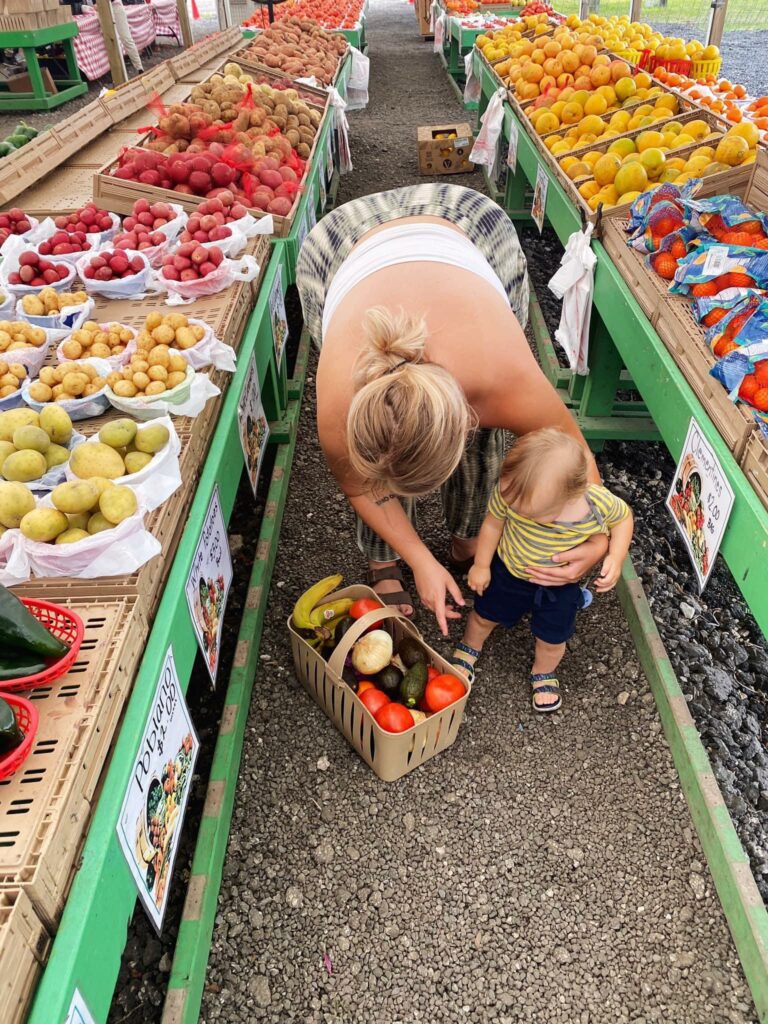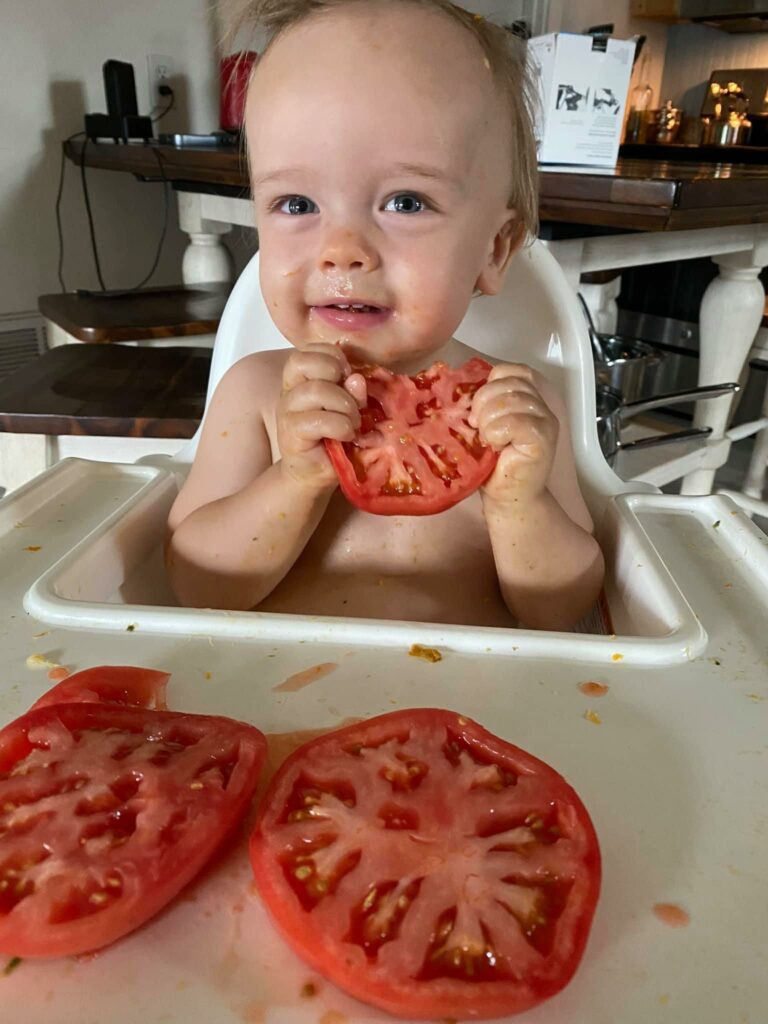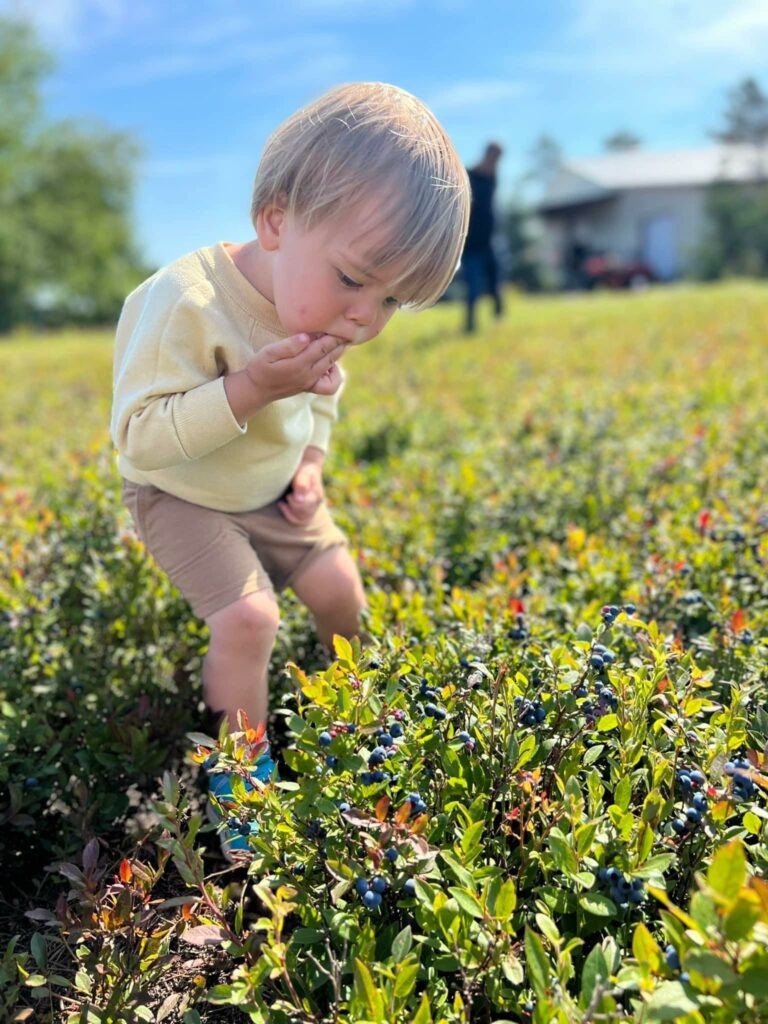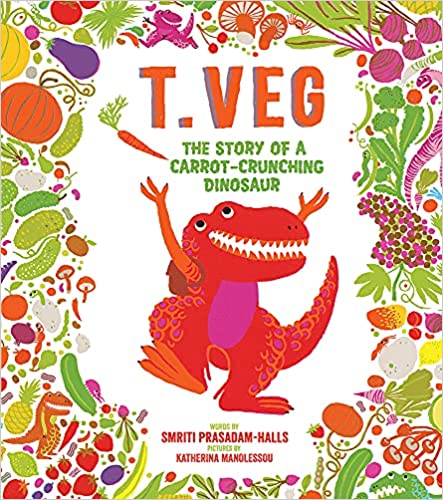I remember my then 1-year-old son Felix’s first day at daycare. The teachers pulled me aside to excitedly tell me that when Felix found their play veggies, he grabbed a carrot and pretended to chop it on a cutting board. I swelled with pride as I realized he had watched me chop veggies so many times throughout his babyhood that when he saw a play carrot, his first instinct was to start cooking!
Even when you think they aren’t, kids are always watching and absorbing. Here are 6 ways you can involve your children in the local food process – from seed to plate – small, simple actions that can make a big difference in your child’s relationship with food for the rest of their lives!



1. Go to the market!
The stimulating hustle and bustle, the sunshine and fresh air, and of course, the variety of healthy produce, make markets a great place to have the kiddo tag along. Kids of all ages can hone their social skills by making eye contact or conversing with adoring farmers at the market and practice saying “Hi,” “How are you?” ”I’m good,” “My name is ____” and “Bye”! Talk to your child about how the farmers worked hard to grow this produce and not to forget to say “Thank you!”
Increase agency for kids of any age by letting them pick out fruits and veggies that look good to them to add to your basket. Later, you can show them how to prepare it and experiment with a taste test!
2. Practice taste descriptor words.
Is it sweet? Salty? Creamy? Tangy? Sour? Encourage analytical curiosity when it comes to flavor, instead of just “I like it”/”I don’t like it.” Participate in this endeavor by tasting things and coming up with descriptor words together. This thoughtful approach to flavor works wonders for picky eaters!
3. Unpack a box or market bag.
Have children unpack your CSA box or market bag and practice naming each one. You could take it a step further – What color? How many? How do they feel? Are these veggies stored in the fridge or on the counter? Make a big deal of celebrating any time your CSA box is delivered. Enthusiasm is contagious, and pretty soon your kids will learn to get excited about fresh veggies, too!
4. Involve them in the cooking process.
They may not be able to wield knives yet, but using play knives, or simply watching you chop, still works wonders. Cooking with your children will look different at every age and for every family, but even involving kids in cooking in small ways sets them up for a lifetime of food agency. Use a stool or have a partner lift your child up to help rinse produce, transfer them into a pot, or stir the pot with a spoon. Let your child crack the egg or sprinkle the seasoning. Patience is key here; fight the urge to take over and let your child make mistakes as they figure things out and develop those fine motor skills.
Toddler-age and older kids can also learn to be good helpers in the kitchen. A mutually beneficial way to involve your child in the cooking process is to have them accomplish small helpful tasks, like throwing things away in the garbage can, placing veggie scraps into the compost bucket, or going to grab a cloth or spoon.
5. Interact with a garden or farm.
Though it may not feel like it at first, it’s never too early to introduce concepts like plant growth, seeds, ripeness, and seasons. A fun, interactive way for kids to understand this process first-hand is to involve them in the harvest!
Whether it’s a U-pick blueberry farm, sunflower field, hoophouse, or farm with goats and chickens, bringing your child along to interact with the plants and animals is a completely immersive learning experience. Watch them pick berries, tomatoes, or cucumbers, and taste the freshness!
6. Introduce food-centric books and media.
From fostering literacy to encouraging closeness and routine, the effects of reading to your child cannot be overstated, so choose books with topics that you value! Here are some of my recommendations:


- T. Veg the Carrot-Crunching Dinosaur by Smriti Prasadam-Halls (This visual delight is my son’s favorite! Following the quirky story of a vegetarian T. Rex, it points out that you can eat veggies and be strong, too.)
- The Very Hungry Caterpillar by Eric Carle (This well-loved classic not only encourages good eatin’, but touches on counting, days of the week, and the life cycle of the butterfly.)
- Seeds by Carme Lemniscates (This book focuses seeds growing into plants, but also touches on metaphorical seeds like anger and emotions. Both grow according to whatever seed is planted.)
Print out our free Coloring Placemat, illustrated by TLD’s Emily Row, for an easy way to engage children and teach them about Michigan winter veggies!
Lily Venable is the Social Media Coordinator for Taste the Local Difference. Her son, Felix Venable, is a summer tomato fanatic and avid local veggie enthusiast.
